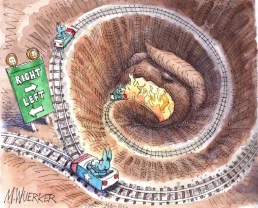“The damage that private equity has wrought on Americans’ healthcare from cradle to grave, simply for profit, has become a life-or-death situation.”
By Brett Wilkins, Common Dreams
Private equity’s ownership of U.S. healthcare providers is incompatible with the needs and best interests of patients and should be checked with federal legislation, according to a report published Wednesday by the consumer advocacy group Public Citizen.

Critics of for-profit care have long decried private equity’s focus on maximizing returns through practices including slashing staff, surprising patients with astronomical bills, and eschewing low-margin care upon which vulnerable populations rely. The new report—authored primarily by Public Citizen healthcare policy advocate Eagan Kemp—examines investment firms’ impact on more than a dozen healthcare sectors, from reproductive health through end-of-life care.
“Private equity acquisitions in the healthcare sector have steadily climbed since the financial crisis in 2009, particularly in the past five years,” a summary of the report notes. “Unlike acquisitions of hospitals, which typically occur under a public spotlight, the private equity industry’s acquisitions of physician practices and other healthcare business lines often occur with little or no disclosure or public scrutiny, hindering the ability of regulators and watchdogs to monitor the effects of private equity ownership.”
According to the report:
In general, the private equity industry’s business model poses risks to the long-term sustainability of entities that the industry acquires. That is, in large part, because private equity purchases are typically financed with debt that is immediately transferred onto the books of the businesses acquired, thus leaving the acquired entities with debt burdens to manage.
Meanwhile, private equity investors seek outsize returns on an accelerated timeline, generally aiming to exit investments in three to five years with returns of 20%-30% per year. This objective induces them to take short-sighted steps to supercharge profits or otherwise wring capital out of the assets they acquire.
The risks posed by private equity investments in healthcare are particularly acute. After all, the services healthcare providers offer can spell the difference between life and death. Private equity has targeted segments of the healthcare industry since at least the 1990s, with many predictable outcomes. Among them, shocking lapses in safety have occurred, prices have risen faster than at non-private equity acquired entities, and patients have been subjected to price gouging schemes.
The conflict between providers’ obligations to provide the best care and private equity investors’ insatiable appetites for maximized [returns] provides is clear. “You can’t serve two masters,” a doctor who previously worked for private equity-owned U.S. Dermatology Partners toldBloomberg. “You can’t serve patients and investors.”
“Thanks to a lack of transparency, we don’t know everything about private equity’s incursion into healthcare. But what we do know is shocking and immoral” said Kemp. “The damage that private equity has wrought on Americans’ healthcare from cradle to grave, simply for profit, has become a life-or-death situation. Transparency and oversight are needed, stat.”
The report suggests legislative solutions including Sen. Elizabeth Warren’s (D-Mass.) Stop Wall Street Looting Act and Rep. Pramila Jayapal’s Healthcare Ownership Transparency Act. The latter, according to Jayapal’s office, “would require private equity firms and other financial interests to disclose ownership stakes in healthcare facilities including nursing homes.”
A September 2022 Public Citizen report detailed how federal regulators had failed to implement a 2010 law requiring nursing homes to disclose their owners. Other investigations during the Covid-19 pandemic found that home healthcare, hospice, and nursing facilities and services owned by investment firms often provided a lower standard of care.
“We applaud Rep. Jayapal’s ongoing effort to shine a light on the dangerous toll private equity vultures are taking on our health,” Public Citizen president Robert Weissman said in a statement. “Adequate regulation of this predatory industry is acutely critical when it comes to the healthcare sector.”
Recent Posts
“Hands Off Cuba!”: Left Groups in Europe Mobilize Against U.S. Aggression
February 10, 2026
Take Action Now Hundreds demonstrated in Belgium in solidarity with Cuba as further mobilizations against US imperialism are planned across Europe.……
Democrats Propose Minor Reforms for ICE — and Record Funding
February 10, 2026
Take Action Now Congressional Democratic leaders are asking ICE to agree to reforms, promising to vote for $11 billion in funding for the agency if…
Why We Need to Complain About Democrats
February 9, 2026
Take Action Now Too often, centrist Democrats work against progressives, as with NAFTA and the Crime Bill that accelerated mass incarceration.WORT…
The Real Epstein Bombshell Isn’t at DOJ: It’s at Treasury
February 9, 2026
Take Action Now There is another set of files, being withheld by Scott Bessent, that could finally and fully explode this coverup and bring the…




